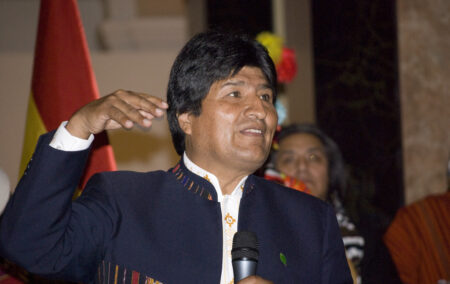Bolivian president Evo Morales has announced that he is resigning from office, in the wake of a disputed election on 20 October.
Morales claimed victory in the election, but it was widely condemned as a result of irregularities. The Organisation of American States called for the result to be dismissed as there were ‘clear manipulations’ in the poll.
The OAS report said: ‘The manipulations to the computer systems are of such magnitude that they must be deeply investigated by the Bolivian State to get to the bottom of and assign responsibility in this serious case.’
Domestic protests had rocked the country, and the military had asked Morales to step down. Doing so, Morales denounced the ‘coup’ and said he was acting out of an ‘obligation as indigenous president and president of all Bolivians to seek peace.’
Morales, who had been in office for some 14 years, was the first president of Bolivia from an indigenous background. An exponent of the so-called Latin American ‘pink tide’, he developed a devoted ideological following among leftists globally, although he was somewhat overshadowed by Hugo Chavez in Venezuela. He was credited with reforms that benefitted the country’s poor (and particularly the indigenous population), although increasing authoritarianism has taken some of the shine off his incumbency.

